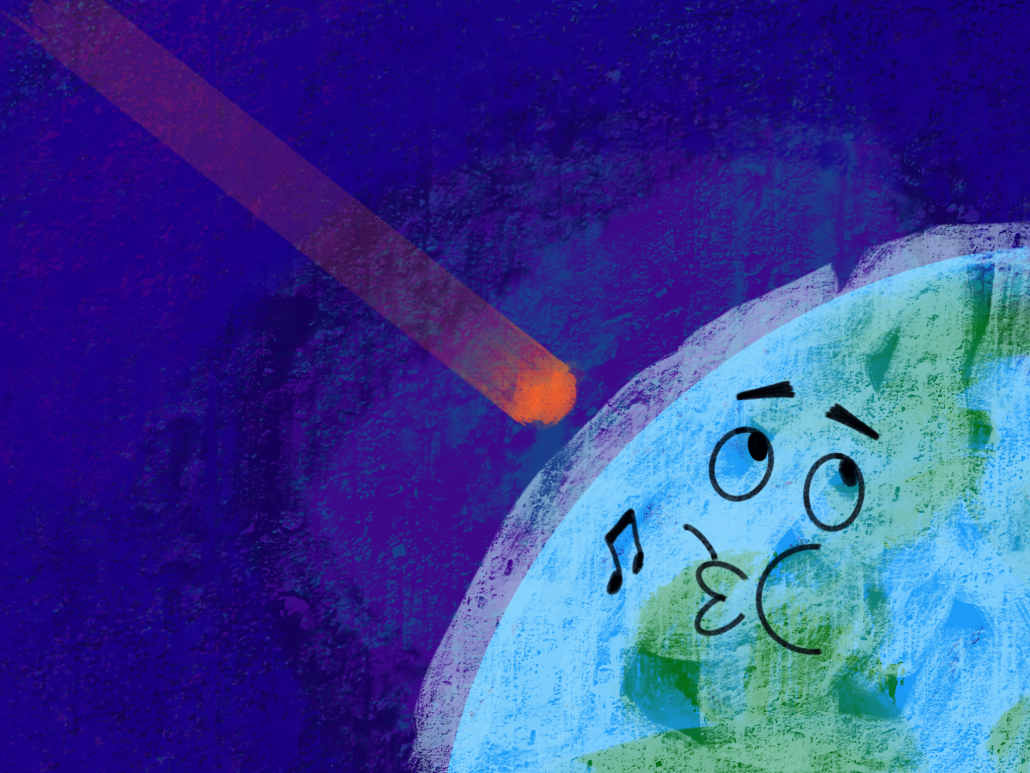Triple Bottom Line: A belated contribution to the “Don’t Look Up” discourse

I’ve been enthralled by science fictionist Ray Bradbury’s short story, “The Last Night of the World,” ever since high school. Everyone in the world has the same dream — that the next day would be the last — and is essentially at peace with it. While there’s no real explanation for the apocalypse, the characters simply enjoy their last night of existence, going about their nightly routine before going to sleep. It’s such a casual acceptance of their own mortality, and consequently, sets the stage for generations of apocalyptic rhetoric to come.
I’m no film critic, but I would be remiss if I didn’t address the controversial new movie, “Don’t Look Up.” I’ve refrained from watching because my Twitter feed has been clogged with polarizing hot takes on the film, but I love nothing more than assigning an academic purpose to binging Netflix, so I sat down this weekend to watch the film that critics call “mean-spirited and smug.”
For those of you who haven’t yet set aside the 2.5 hours of attention span, “Don’t Look Up” follows a pair of astronomers who discover a comet with the trajectory to end life on Earth. As the news takes off, doctoral student Kate and her adviser Randall Mindy are forced to deal with the unpredictability of the media, the politically and financially motivated moves of the United States government, and eventually, the end of the world as we know it.
At first glance, “Don’t Look Up” is “Saturday Night Live”-esque satire at its best — somewhat uncomfortable, overtly obvious and extremely clever. But as plainly sardonic as the movie is, it’s hard to ignore the countless parallels to the way that our nation is dealing with climate change. From the crowds filled with familiar red baseball caps at the “Don’t Look Up” rallies to vapid social media trends precursing the rapidly approaching comet, the blatant denial of the gravity of the situation leads to the decisive demise of civilization.
Political satire is no new mechanism for digesting difficult topics, yet the utter absurdity of the reactions to the apocalyptic comet soaring through the atmosphere is scarily similar to the divisiveness of the issue of climate change. As exaggeratedly reiterative as the movie is, the constant politicization of science continues to misconstrue media misconceptions. When faced with constant doubters, Randall continues to repeat the irrefutable fact that he has the data to prove that the comet is headed their way.
“Don’t Look Up” received criticism about it being unsubtle — yet this is precisely the message it’s trying to send. From tech billionaire Peter Isherwell presenting his latest technology, adding in his unnerving falsetto that “We can make sure … sad feelings never, ever return,” to the hosts of the recurring talk show reminding Randall to “keep the bad news light,” “Don’t Look Up” speaks volumes about the way that the messaging of climate change tends to fall on unreceptive ears. It begs the question that climate journalists (myself included) are constantly asking themselves — how can we get people to care about something that will inevitably affect them when they don’t want to believe it exists at all?
“Don’t Look Up” points fingers at the media, no doubt, but the blanket of criticism covers all — the government, political party polarization, the media, the public and even the three scientists the movie centers on. Choosing climate activist and yacht enthusiast Leonardo DiCaprio for the lead role is questionable, but he plays the part of the befuddled academic thrown into the limelight perfectly. Even Randall has his moment of corruption when he becomes an astronomical sex symbol and engages in an affair, going so far as to endorse the White House’s Isherwell-backed campaign that the comet will create new jobs.
However, despite their best efforts to communicate the urgency of the situation, the characters accept defeat. Drawing an uncanny parallel to the final scene of Bradbury’s tale, the movie closes with a final family dinner at the Mindy household, along with Kate and her new fiancée, Yule, an evangelical Christian with unmistakably chiseled cheekbones. The group continue to chat around the table about the merits of store-bought apple pie versus the homemade variety as the lights flicker, the glasses on the table shake, and the comet and its debris rain down on the world.
Forget my biweekly allowance of 900 words, I wish I could conduct an entire scientific study on this movie. “Don’t Look Up” provides a breath of semi-fresh air to the constant scroll of doom-and-gloom climate headlines. It balances, as The Atlantic describes it, advocacy and nihilism while honing in on the way climate change is perceived and dealt with due to competing priorities.
Like Randall and Kate, climate experts will stop at nothing to communicate the criticality of the situation at hand, but unlike the characters in the movie, our fate isn’t sealed. Even if you were disappointed with the messy ending of “Don’t Look Up,” it provided a much needed call to reflect upon our personal and collective priorities, as well as the media and how we consume it. Let’s be honest — when it comes to the current climate of climate change, things aren’t great. But we still have the power to decide how our story ends.
Montana Denton is a senior writing about environmental issues, sustainability and society in her column, “Triple Bottom Line.”

